Head socks and sandpaper saddles: tech tricks and fashion failures at the Tour de France
We cast a critical eye over the new equipment on display at the world's biggest bike race
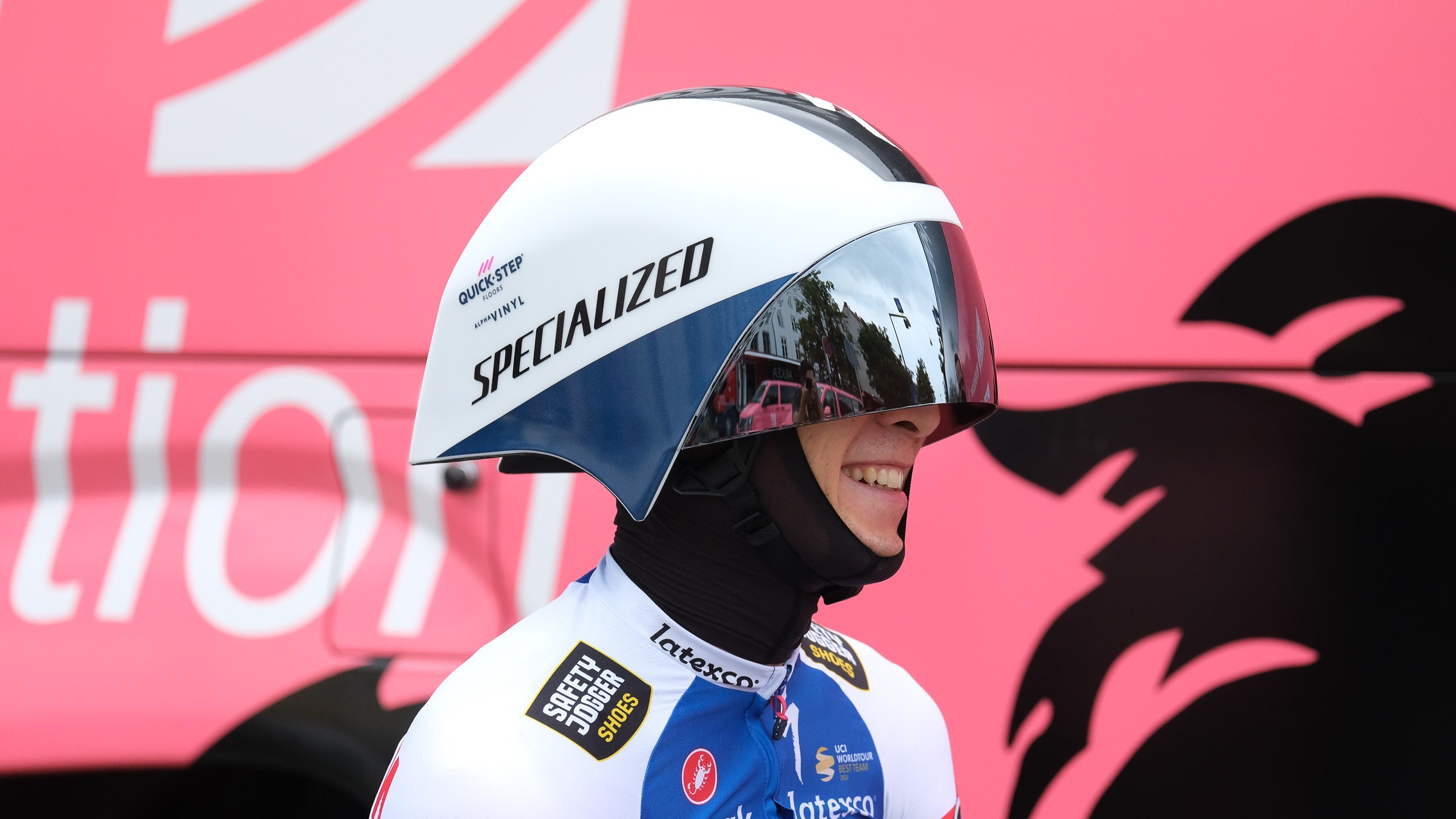
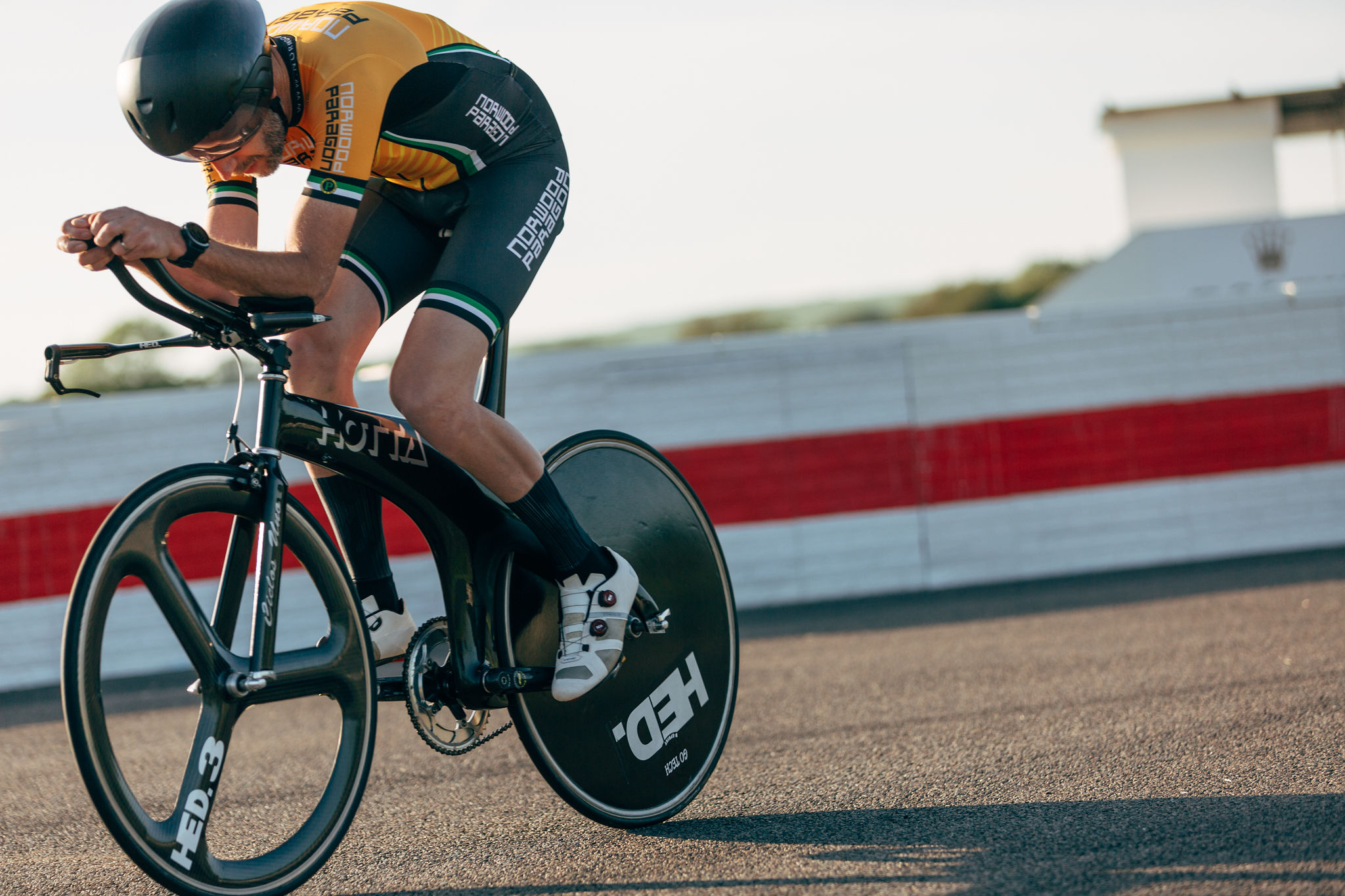
The Tour de France's opening weekend gives cycling fans an opportunity to eyeball the latest and greatest tech from the professional teams.
There were state-of-the-art new bikes from the big Italian arch-rivals Pinarello and Colnago that we saw battling it out on stage one.
Custom carbon components like moulded time trial arm rests are delightful details that we also love to fawn over.
What stole the show - but unfortunately for its manufacturer not the win - was the new Specialized S-Works TT5 time trial helmet. The radically bulbous design that incorporates a Gregory Porter-esque built-in balaclava, or 'head sock', was worn by all the Quick-Step Alpha Vinyl riders except Yves Lampaert, who swept over the line to take the first yellow jersey beating big favourites Filippo Ganna, Wout van Aert, Tadej Pogacar et al... wearing the outgoing snoodless version.
Let's take a look at that new lid and other shiny new things photographed exclusively for Cycling Weekly by Dan Cavallari.
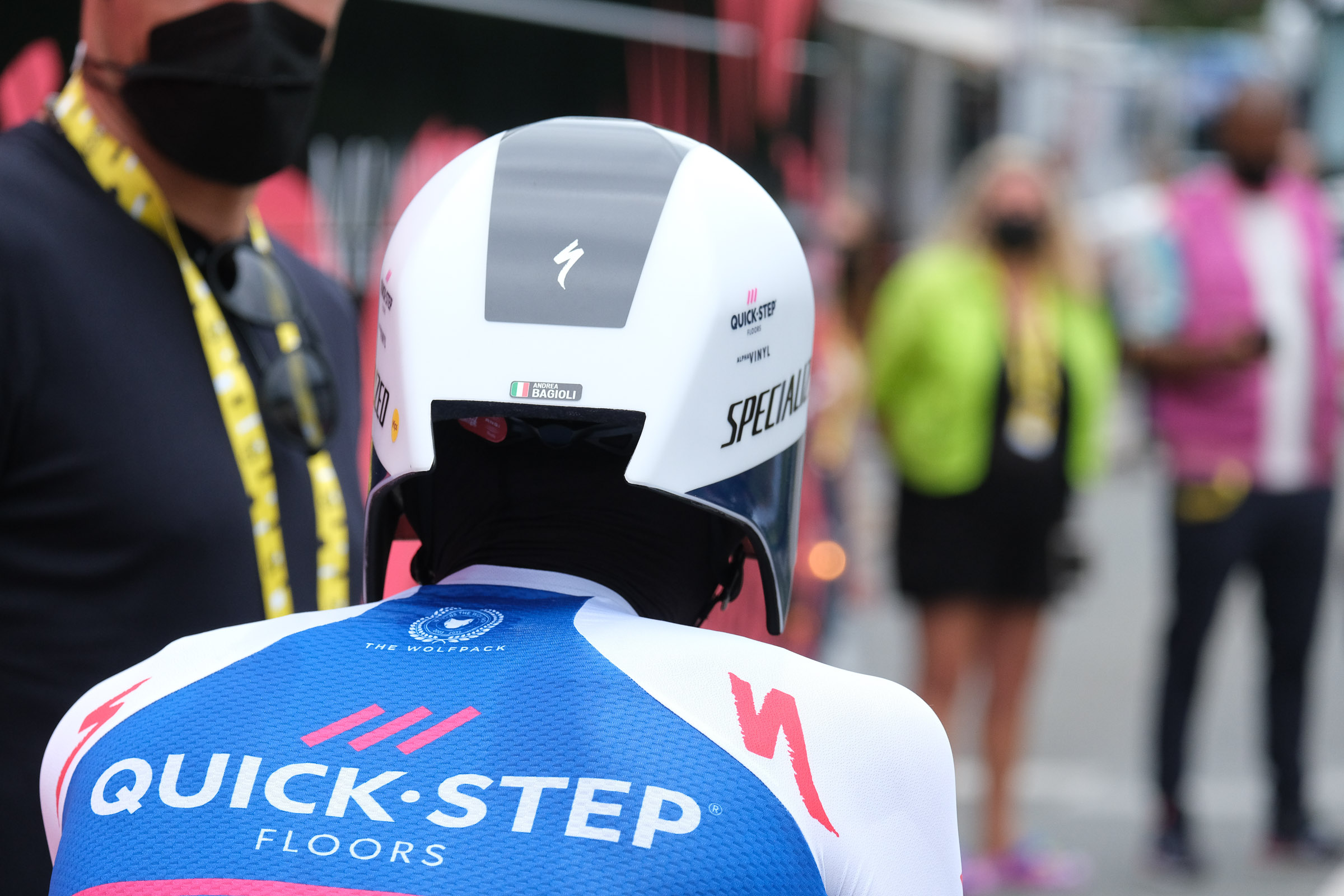
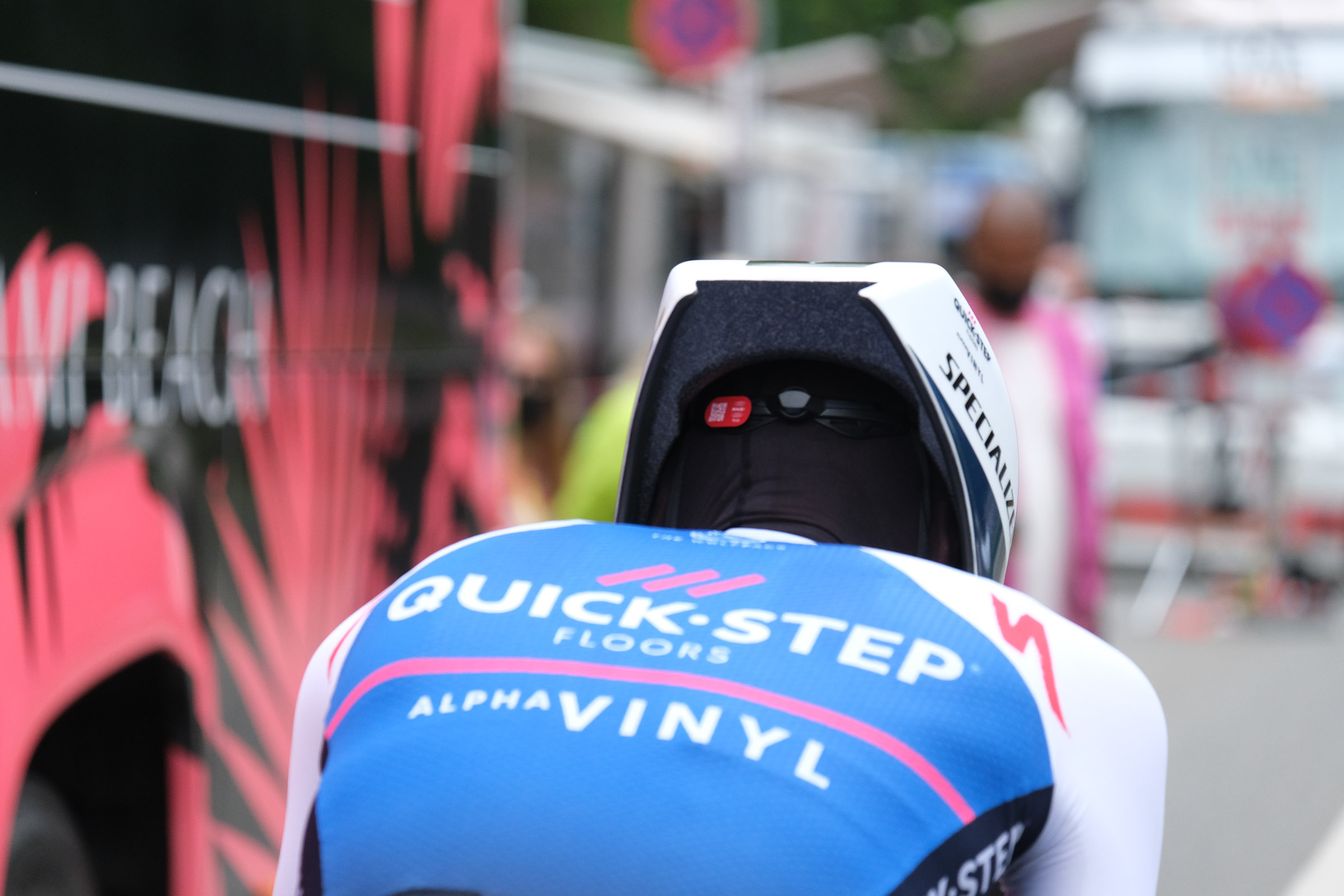
The Specialized S-Works TT5 helmet incorporates a balaclava-style face wrap that covers the rider’s chin, ears, and back of the head. This supposedly smooths out the air over the rider’s face, further enhancing aerodynamics.
The back of the helmet features what appears to be an exhaust port - quite welcome as we imagine in warmer conditions things will be getting a little stuffy in there.
Mads Pedersen's custom moulded TT bars and sandpaper-enhanced saddle
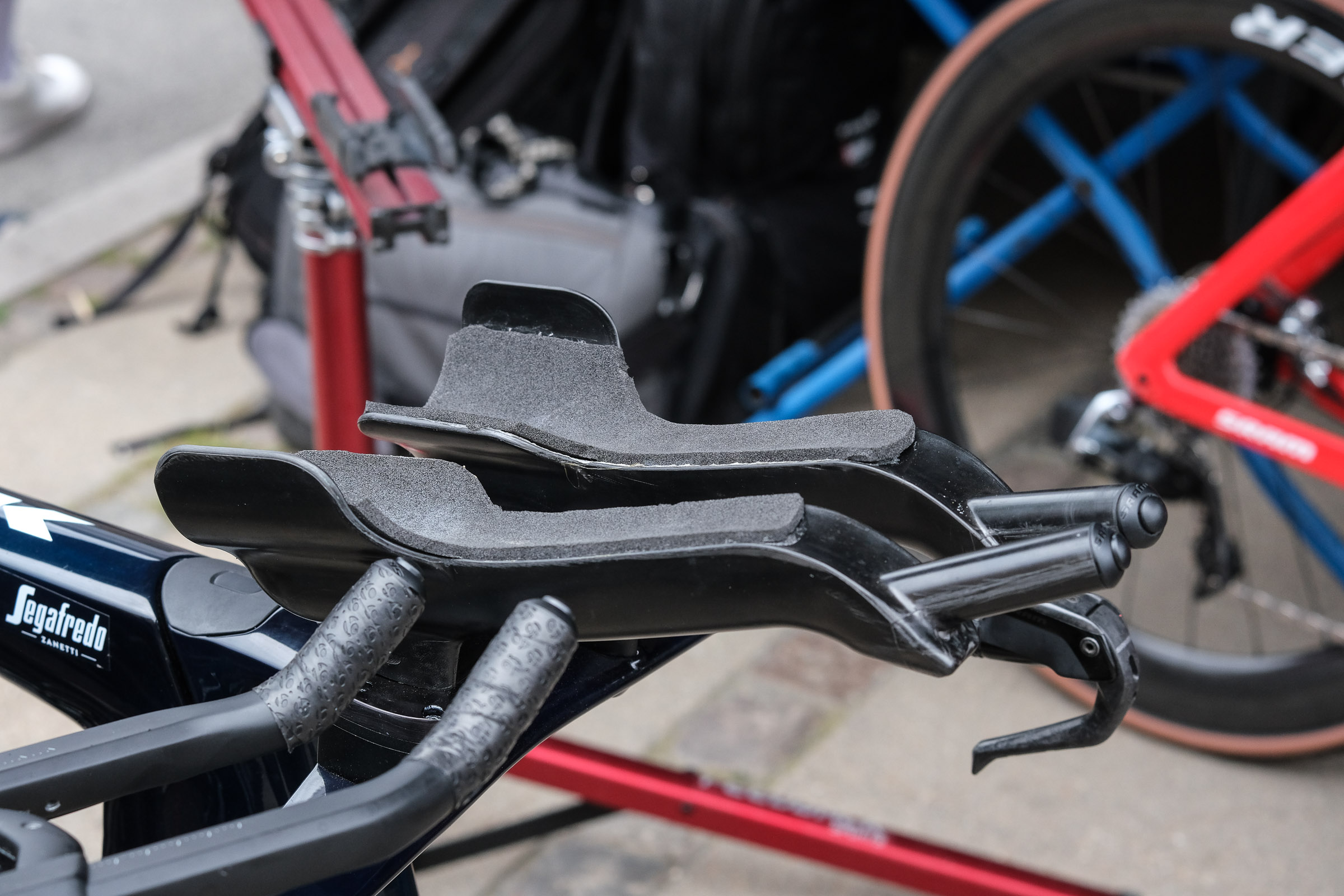
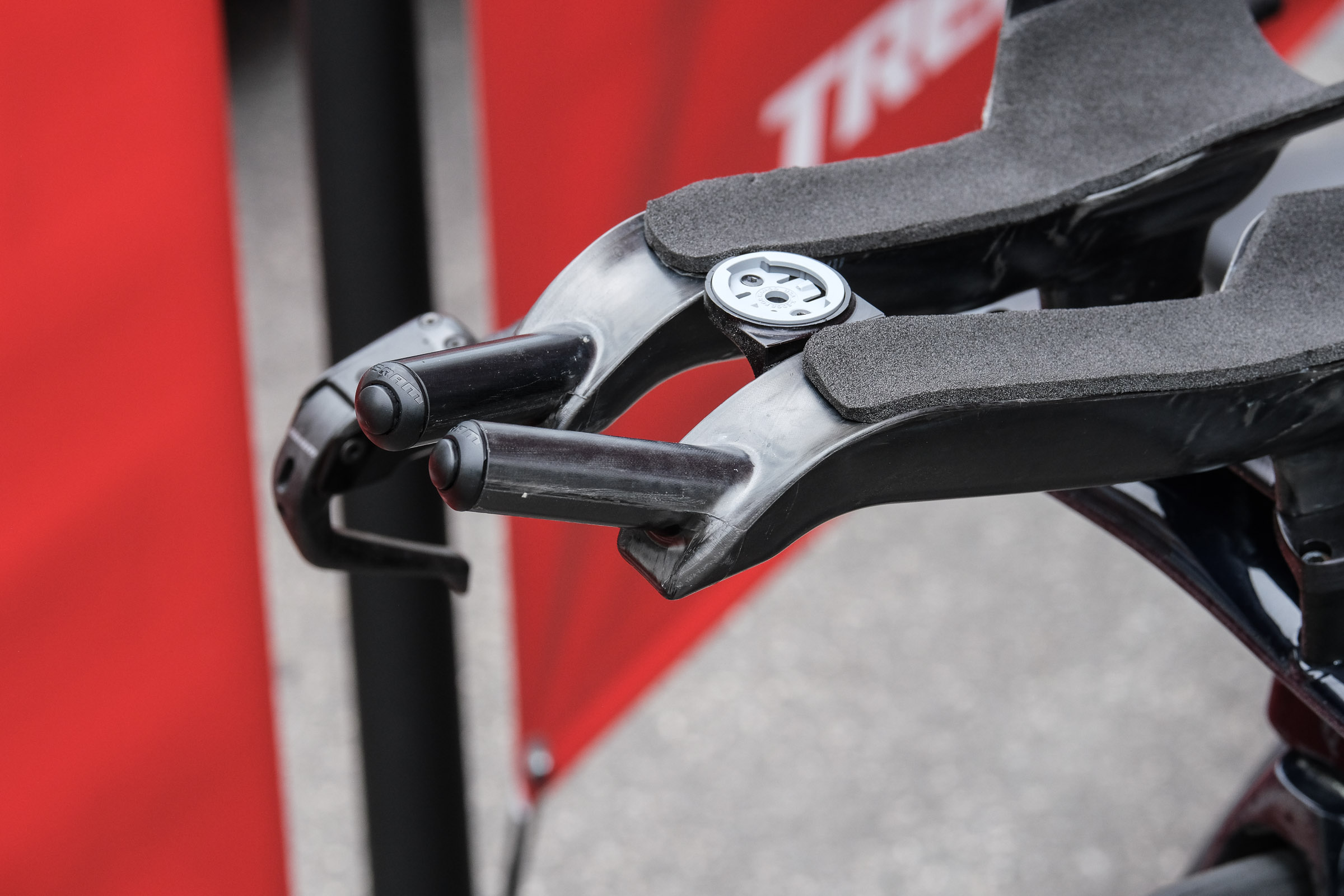
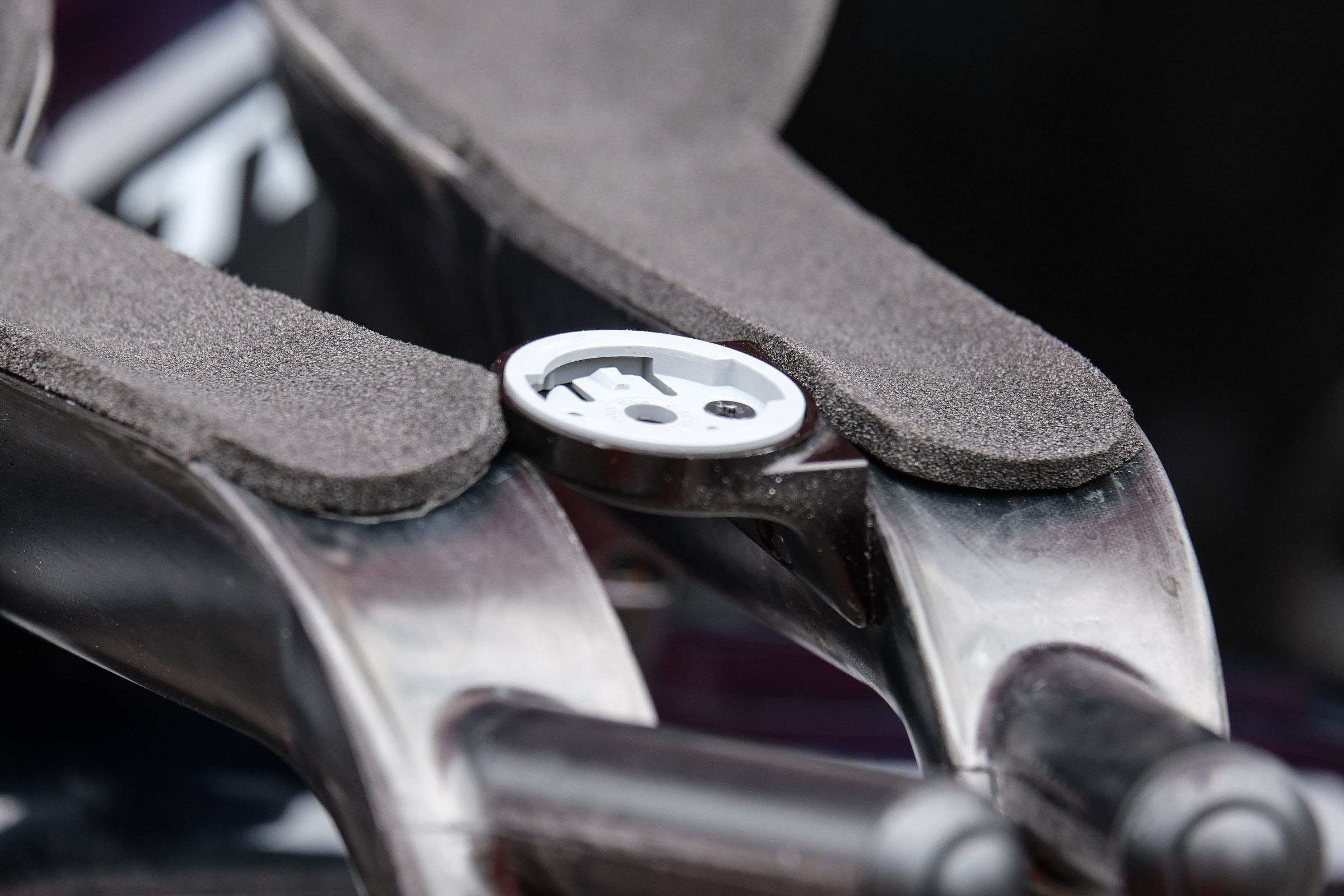
Former world champion and Danish favourite - or one of them - Mads Pedersen sported a unique cockpit on his Trek Speed Concept. It appeared to be custom-molded but we understand it was made by Trek's in-house component brand Bontrager.
The SRAM bar end shifters integrate neatly into the tips of the extensions, which meet the main body of the extensions. That part is much thicker to support Pedersen’s forearms.
The extensions also feature an integrated computer mount.
Pedersen finished with a strong sixth place just 15 seconds behind winner Yves Lampaert and a fraction of a second ahead of the other big Danish favourite Jonas Vingegaard.
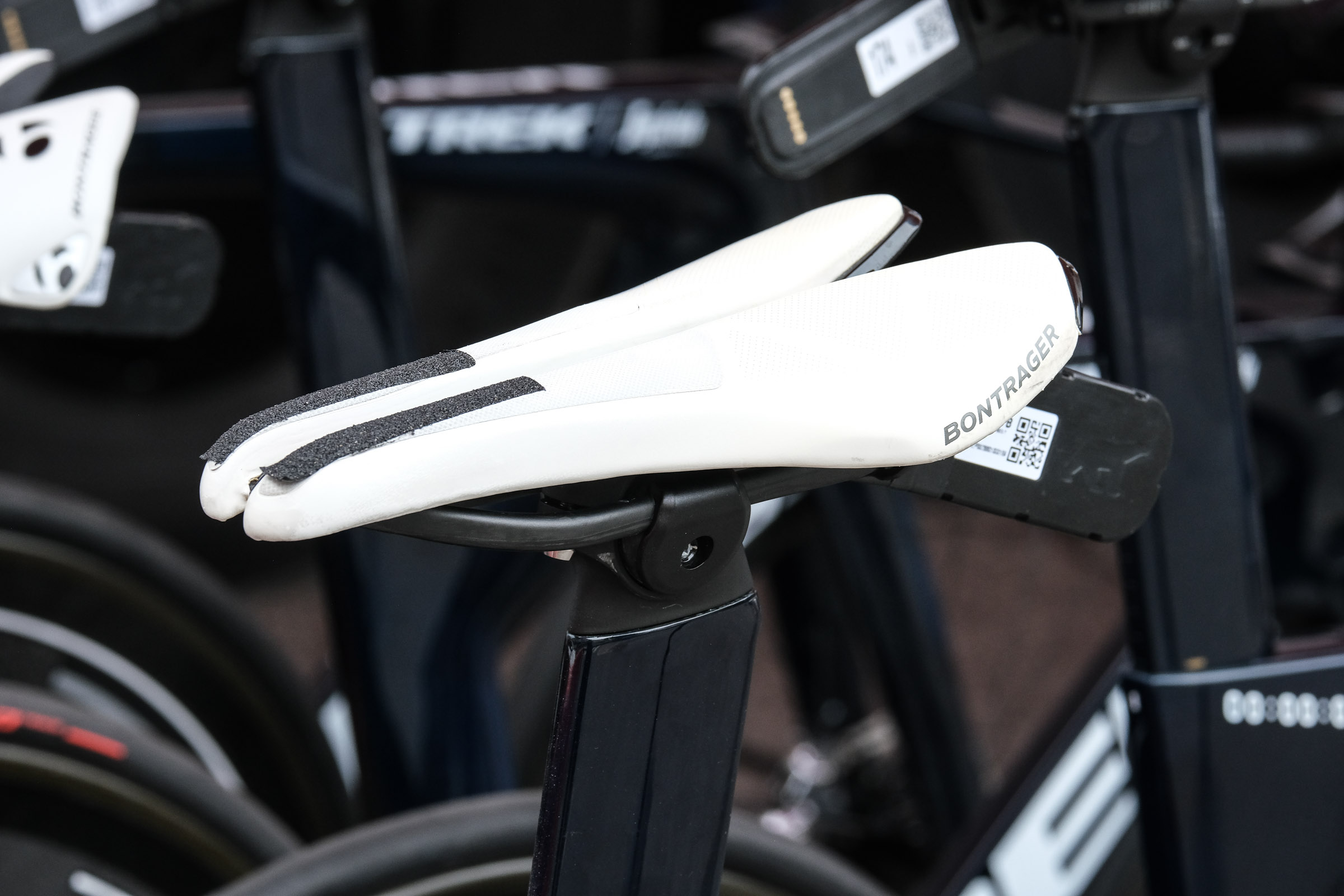
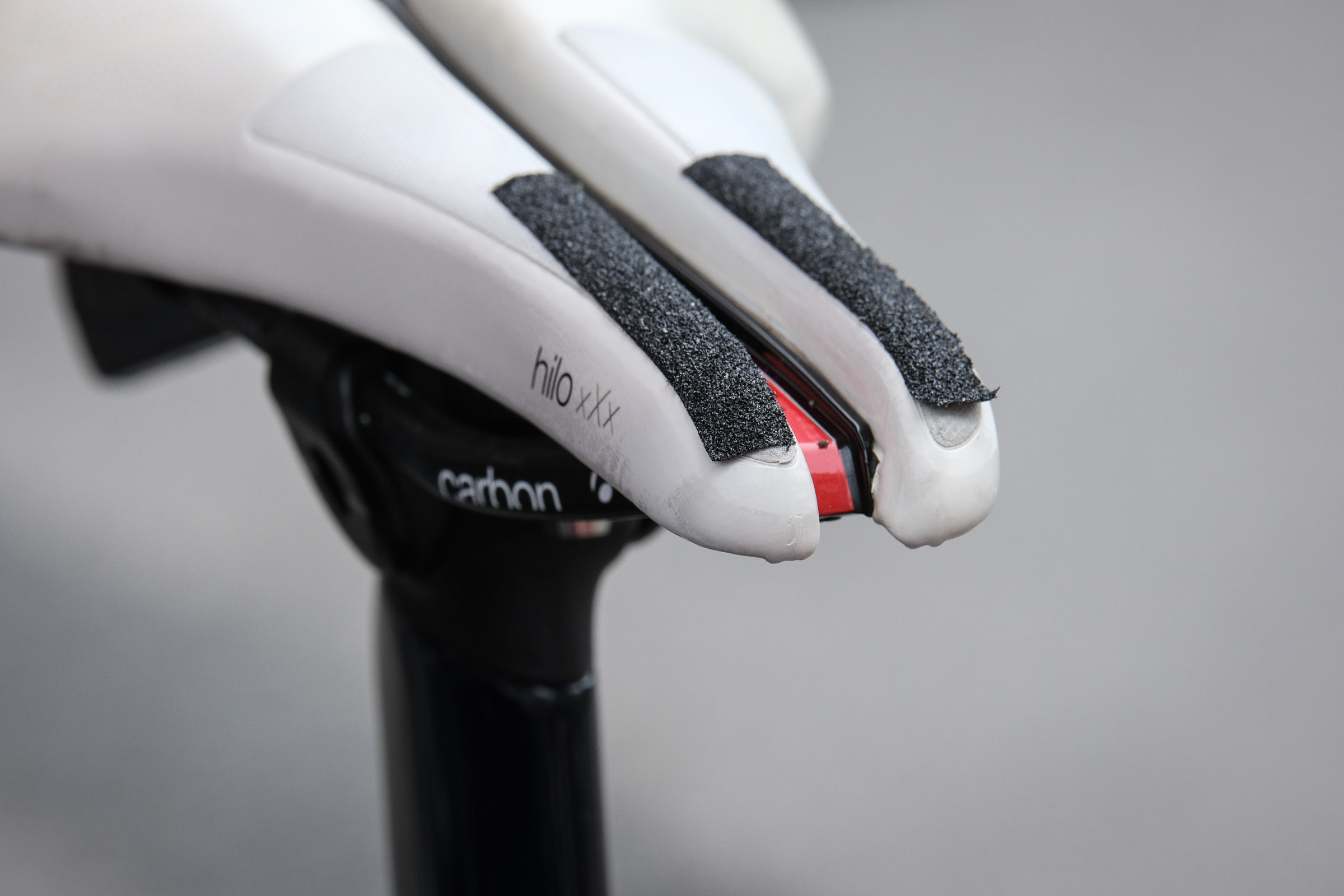
Contrasting with the slippery cockpit, Pedersen used rough tape on his saddle to prevent his body from shifting during the time trial. That may sound uncomfortable, but it also probably came in handy during the rainy, slick stage.
The most famous proponent of the sandpaper-enhanced saddle was Tony Martin, who in the 2015 World Championships chose too coarse a grit and shredded both his skinsuit and his skin beneath.
Close up and personal with the swoopy new Colnago TT rig
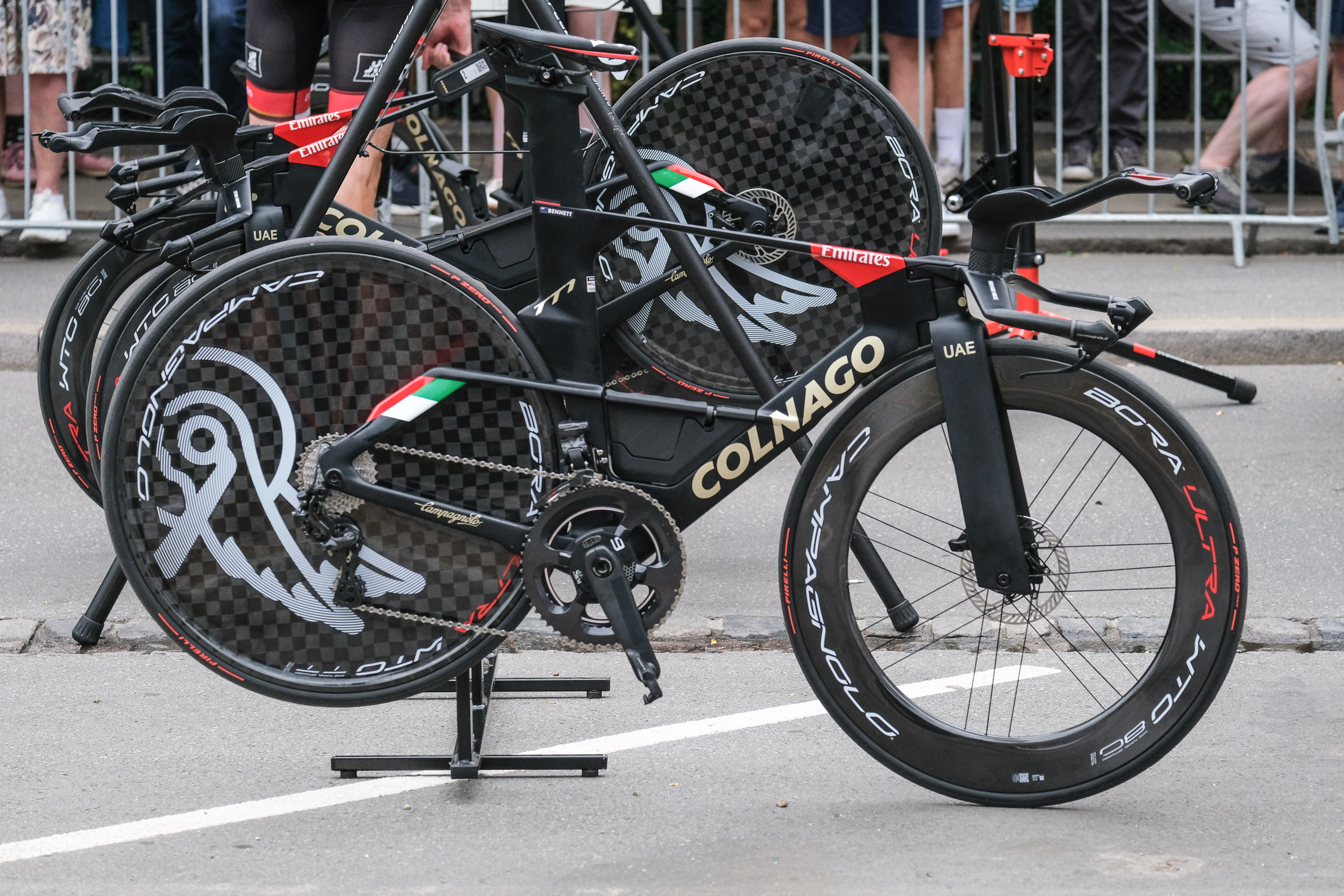
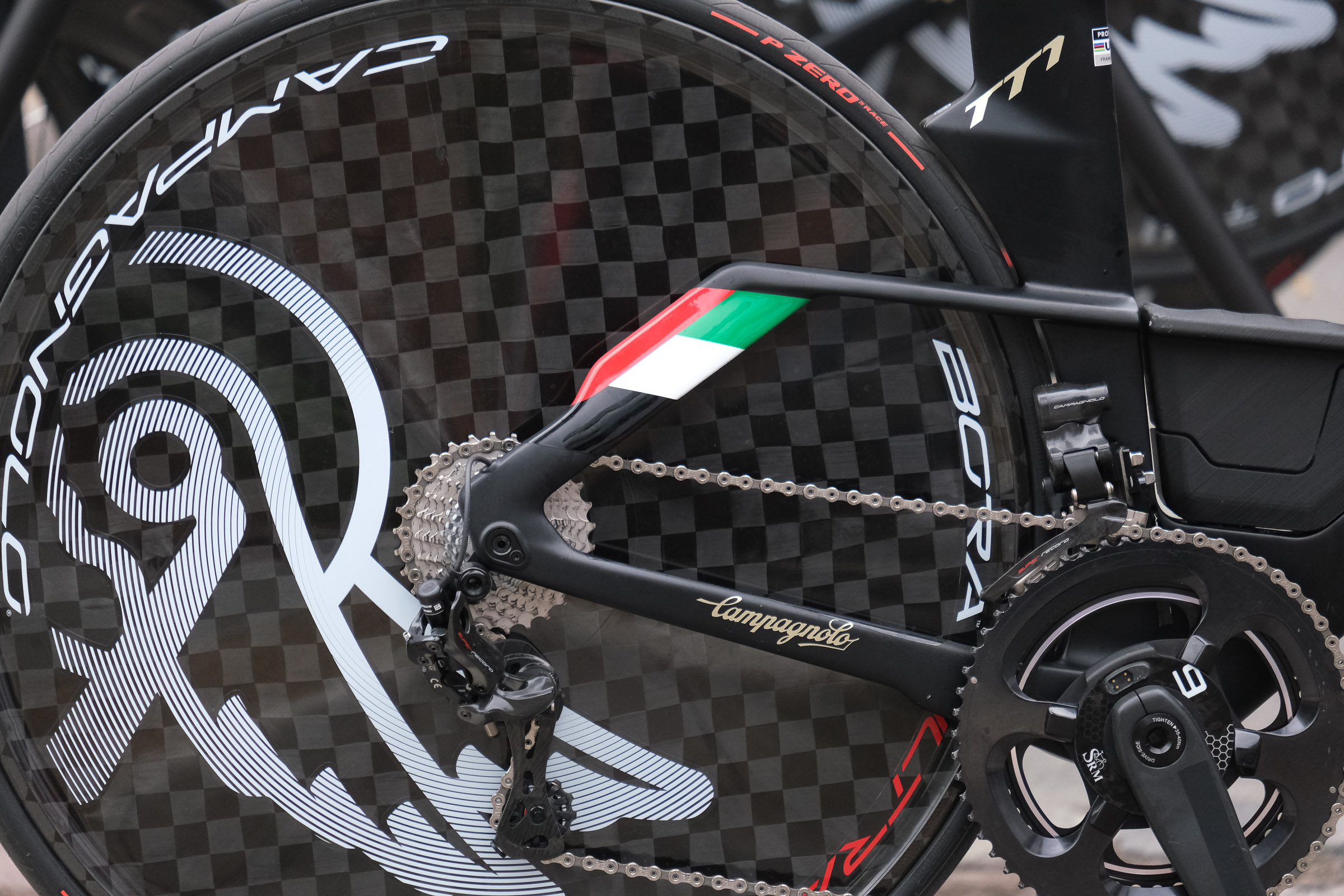
Perhaps the most notable design cue of the Colnago TT1, as ridden by Tadej Pogacar to third place on stage one, is the horizontal chainstay that meets a diagonal chainstay arm. This eliminates what would otherwise be a drag-inducing top section of the seatstay - and looks pretty fast too.
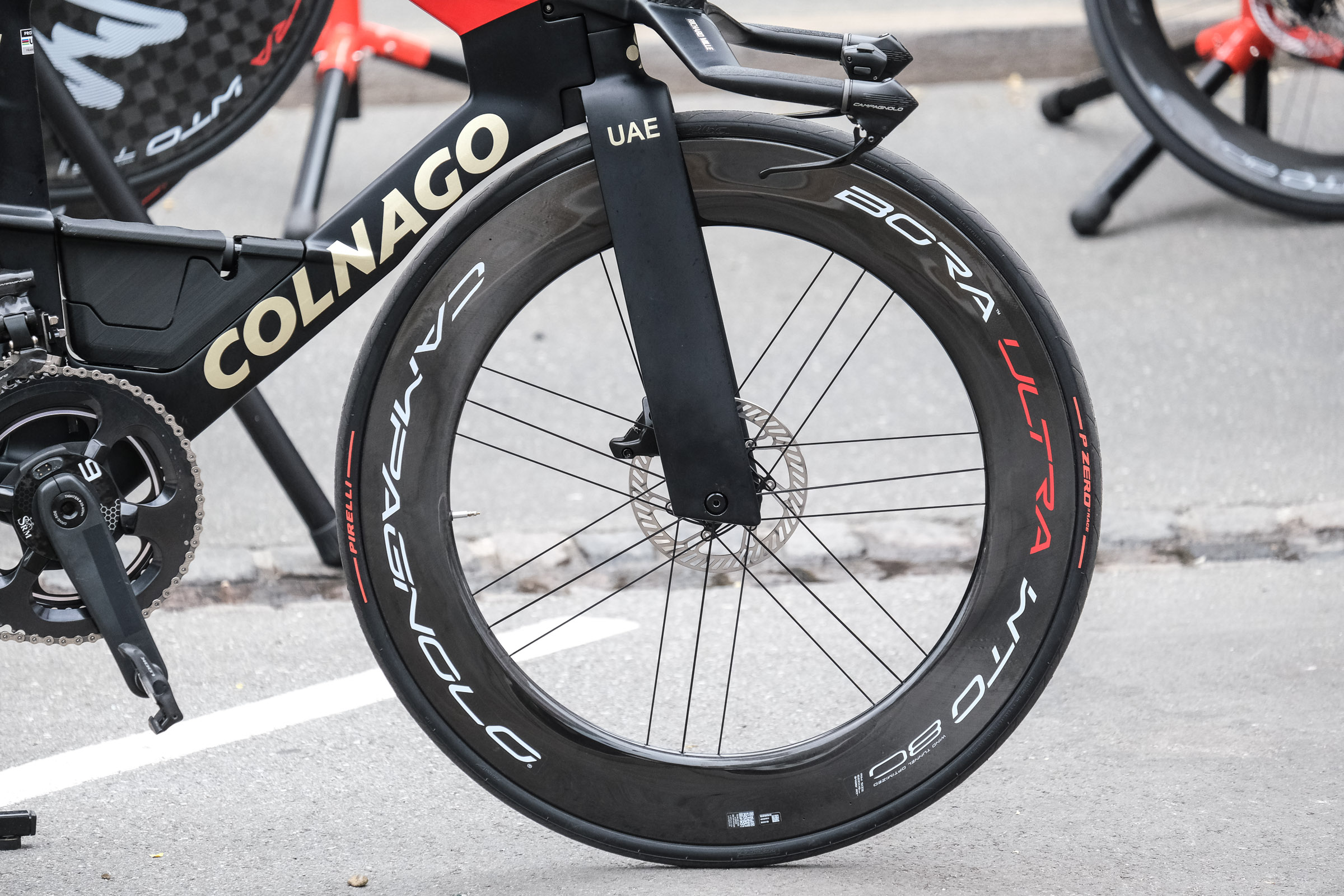
How about those mega-deep fork blades? The UCI revamped some rules recently, and it’s clear Colnago has taken full advantage of the new design constraints.
Relatively normal-sized MET helmets for UAE
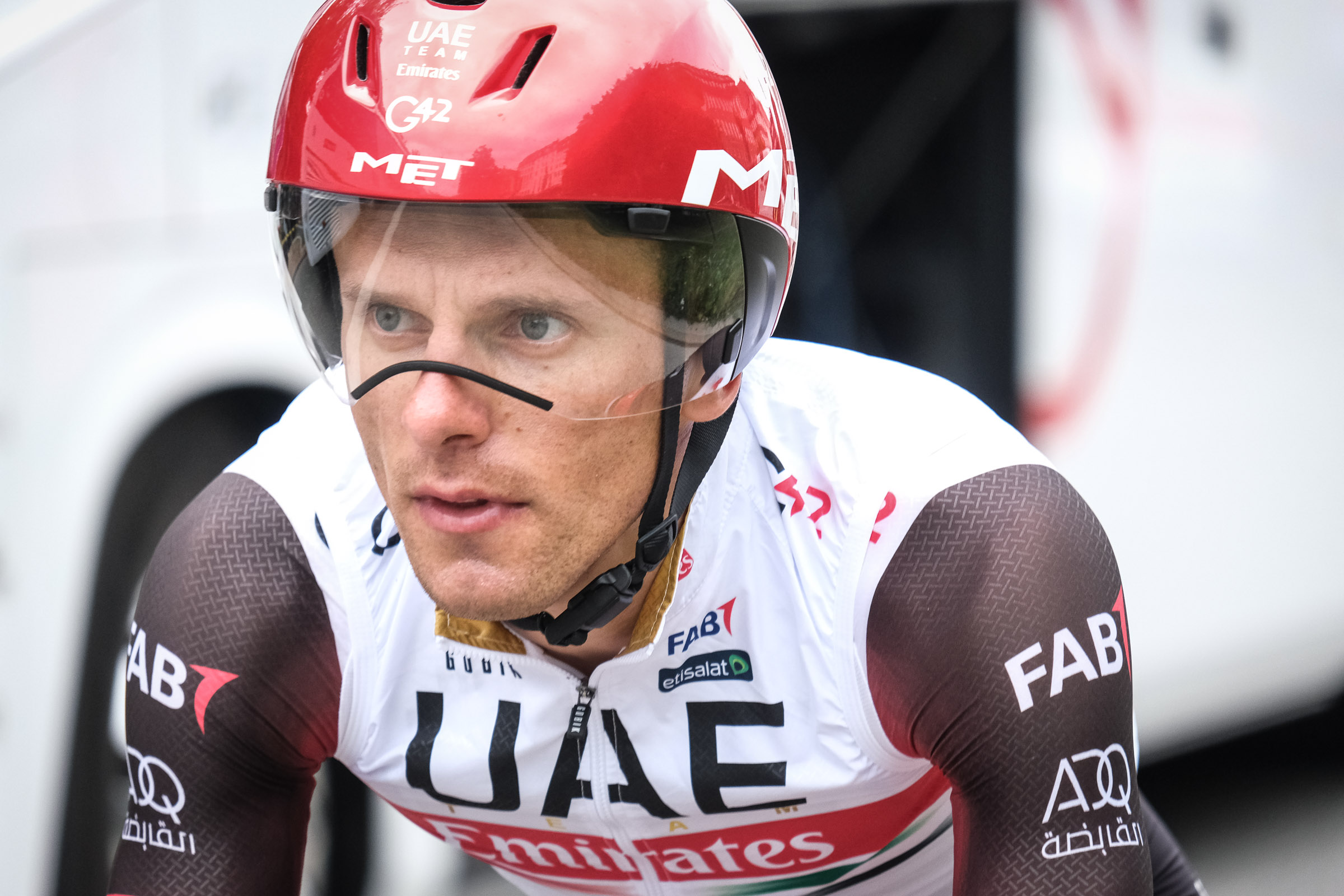
Despite the array of massive new TT helmets in the paddocks - Kask had a huge new helmet for Ineos too - Rafal Majka and his UAE teammates still sported the more ‘normal-sized’ Codatronca helmet from MET.
Fabio Jakobsen's bad hair and Kasper Asgreen's bad knees
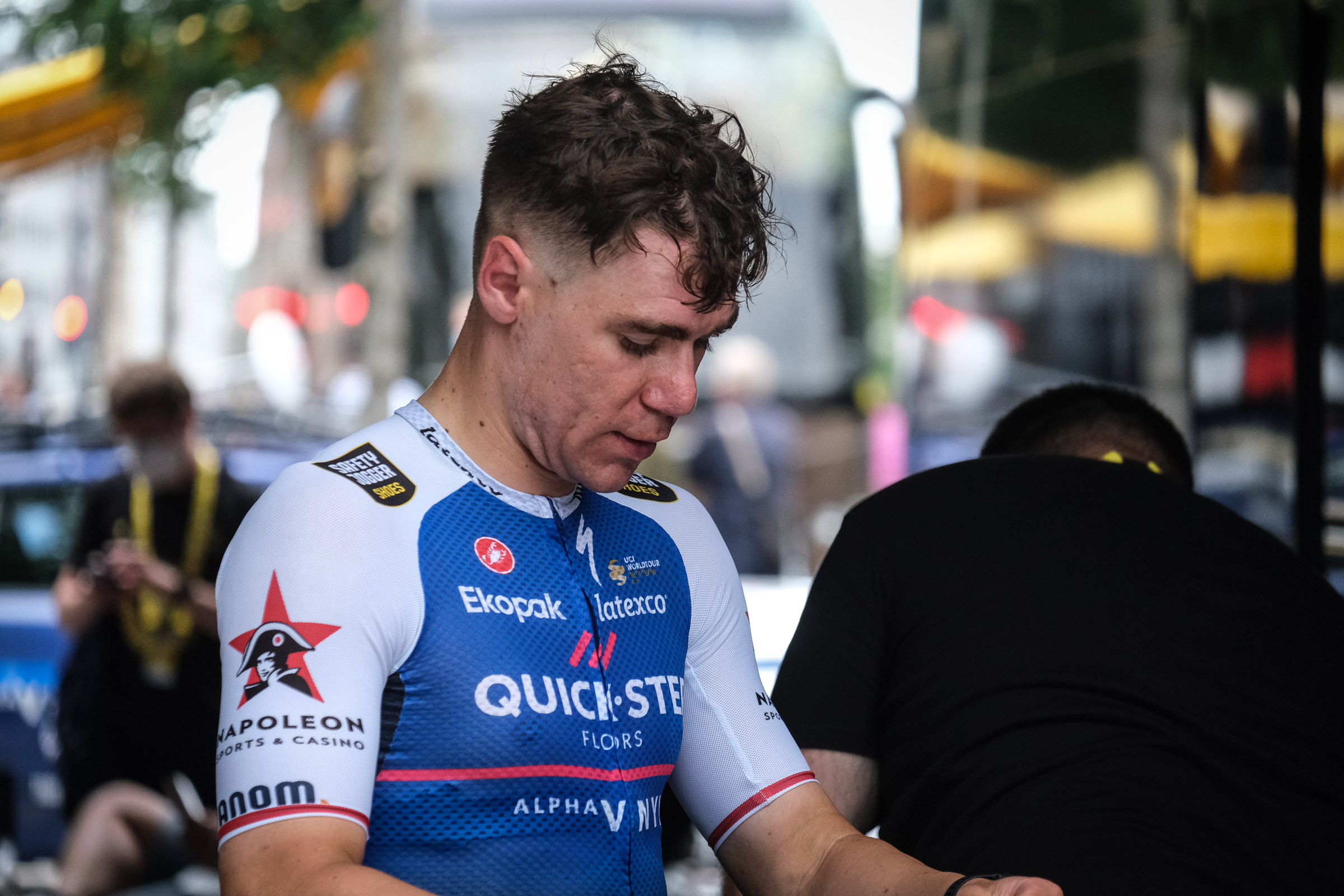
Fabio Jakobsen removes his Specialized S-Works TT5 helmet and balaclava - the thing that is destined to become a new primary culprit of bad hair days in the peloton.
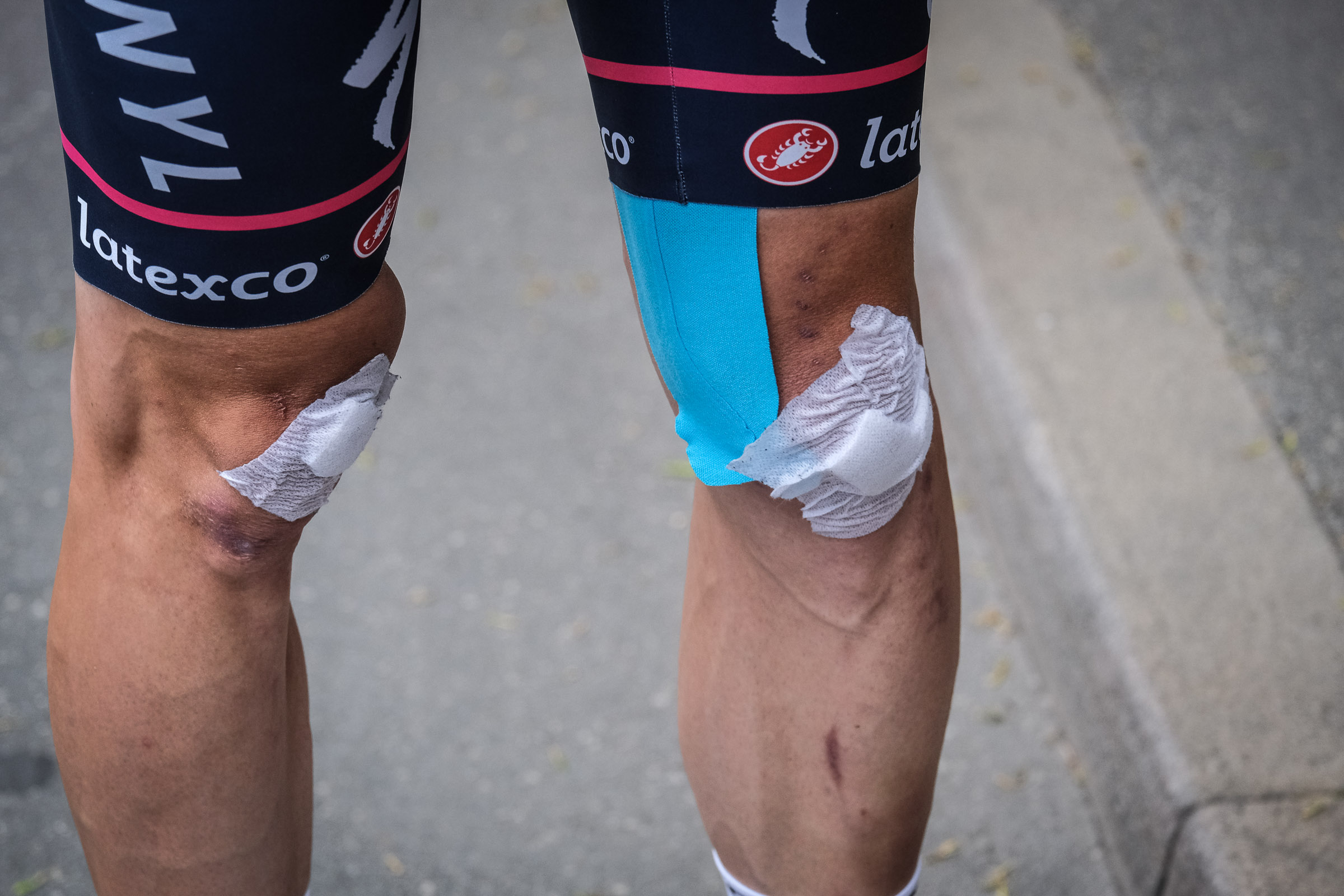
Kasper Asgreen’s knees have seen better days.
John Degenkolb's '20% faster but with a built-in rear light in case you still get dropped' new Scott Foil RC
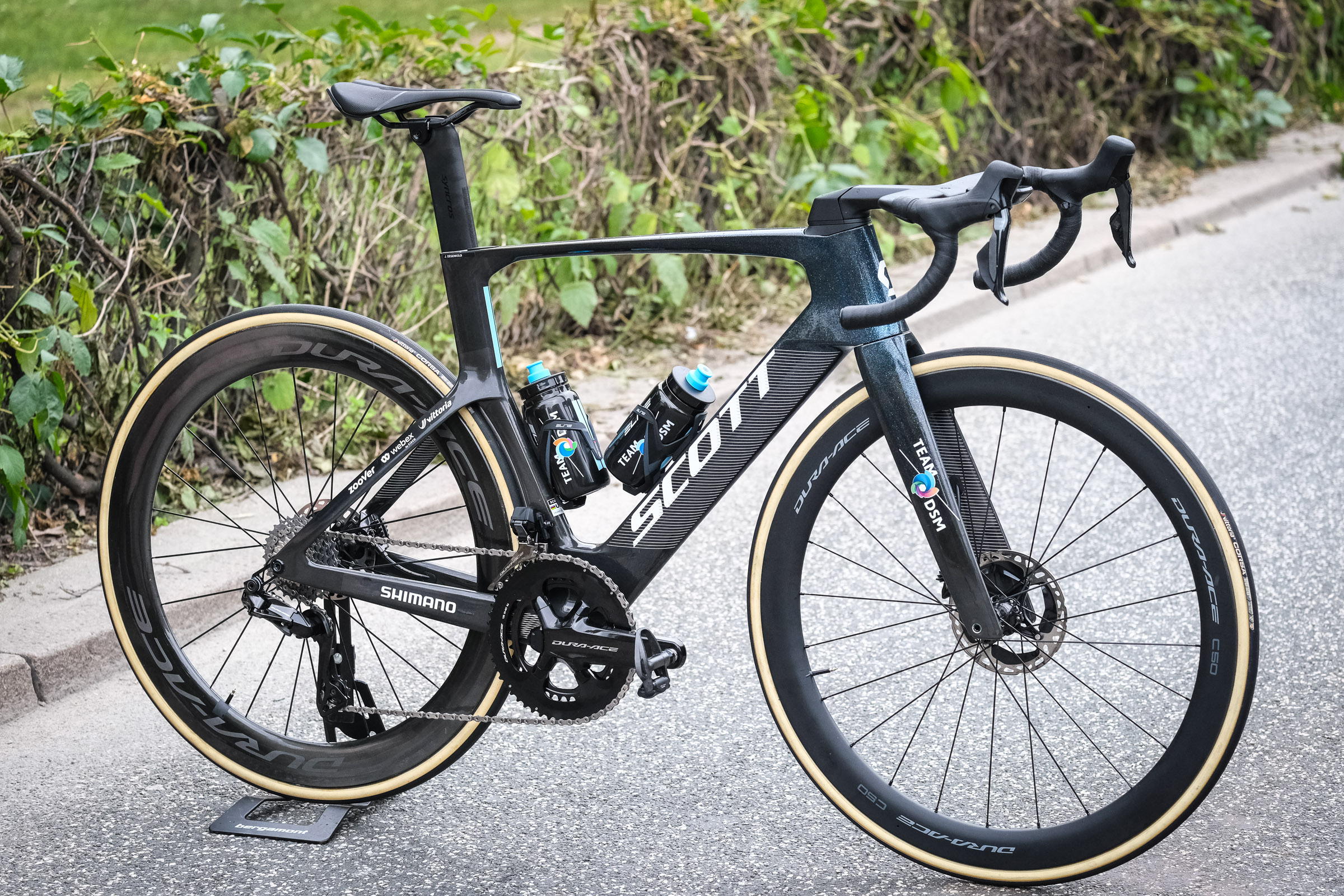
Veteran moustachioed German Classics legend John Degenkolb debuted the brand new Scott Foil RC on stage two. Its manufacturer claims this bike is 20% faster than the old one and it has an integrated rear light in the seatpost.
Degenkolb is now 33 but hopefully won't need that rear light. If he gets dropped by the peloton and benighted it's definitely time to retire.
Chris Froome's customary custom hacks
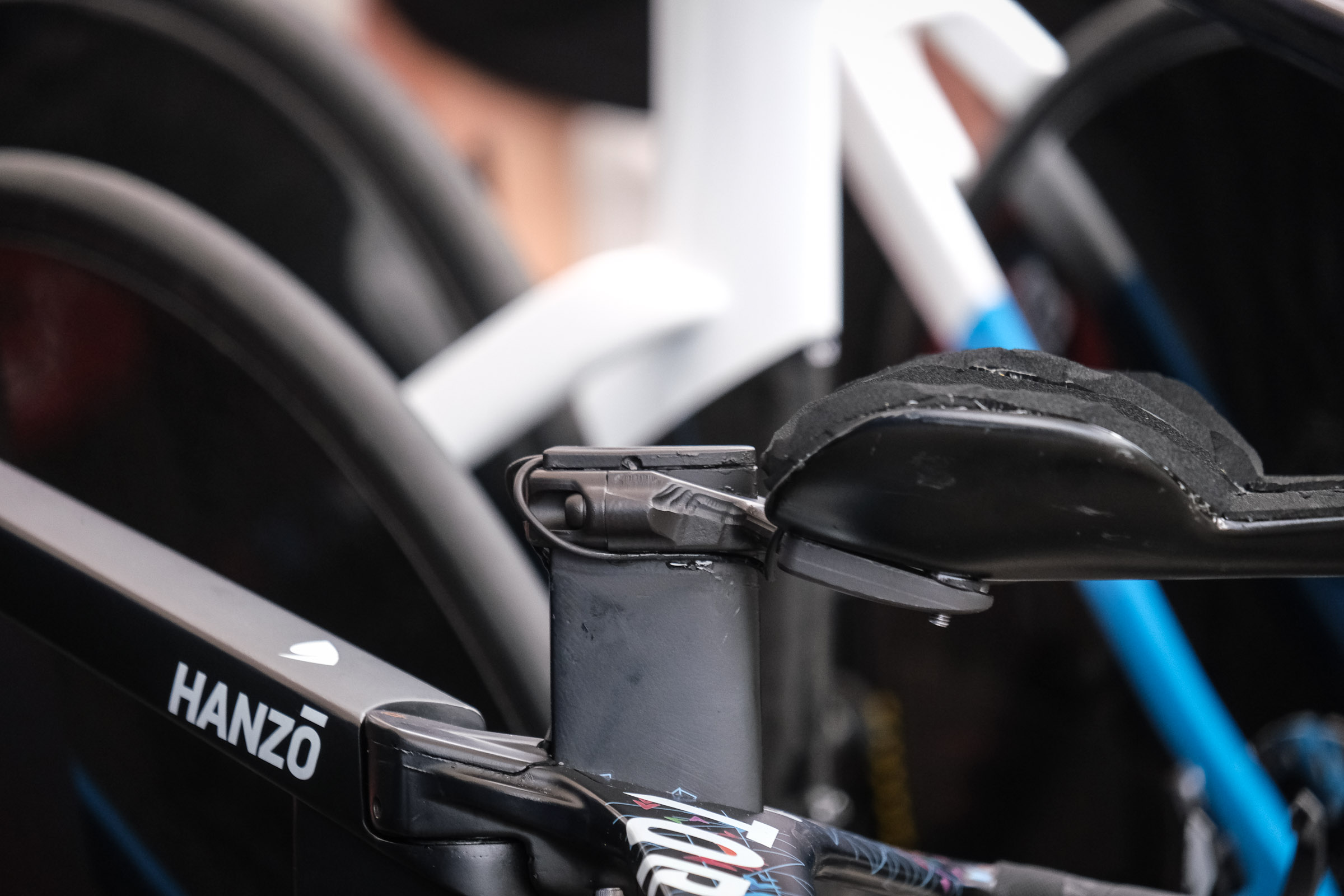
If you’re ever on the hunt for unique setups and tech hacks, look no further than Chris Froome’s bikes. The extension mounts here appear to have been dremeled down to accommodate position, weight savings, or both.
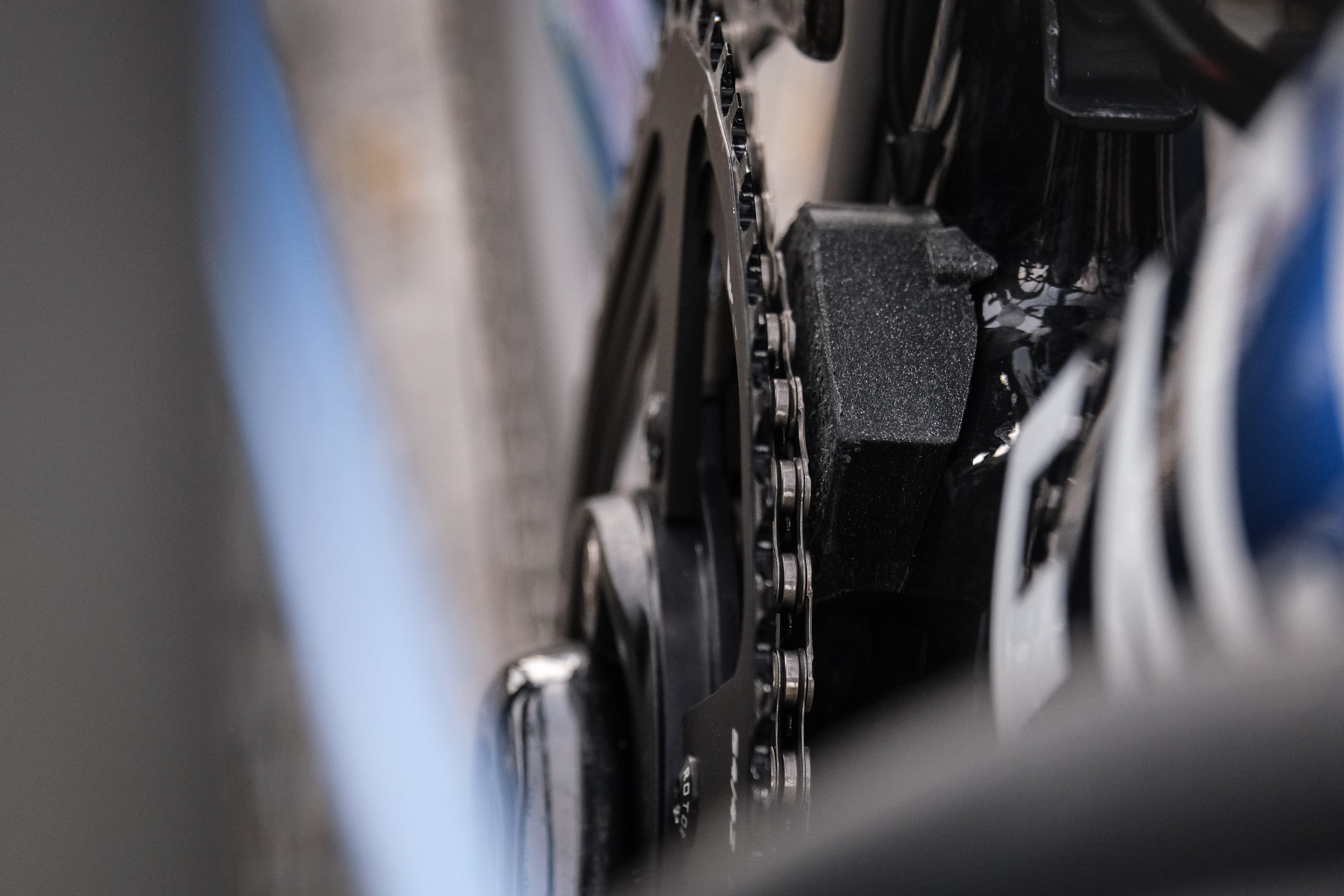
Froome has long used chain guides with his Osymetric chainrings. This 3D-printed piece sits behind the chainrings and the frame on his raceday bike that he’s likely to use on mountain stages.
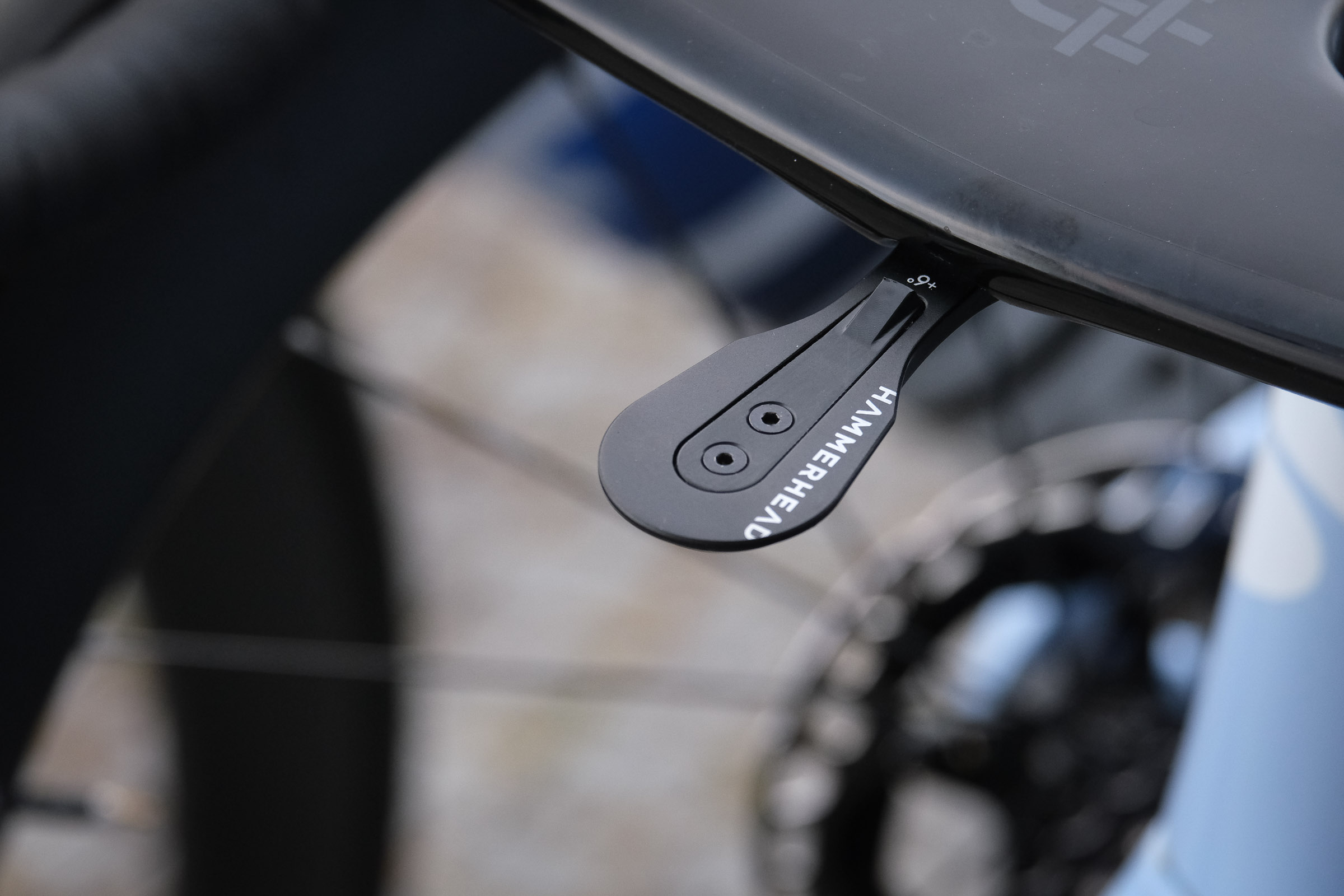
Froome also appears to have a unique mount for his Hammerhead computer. The stock unit comes with a plastic mount, whereas this one appears to be aluminum.
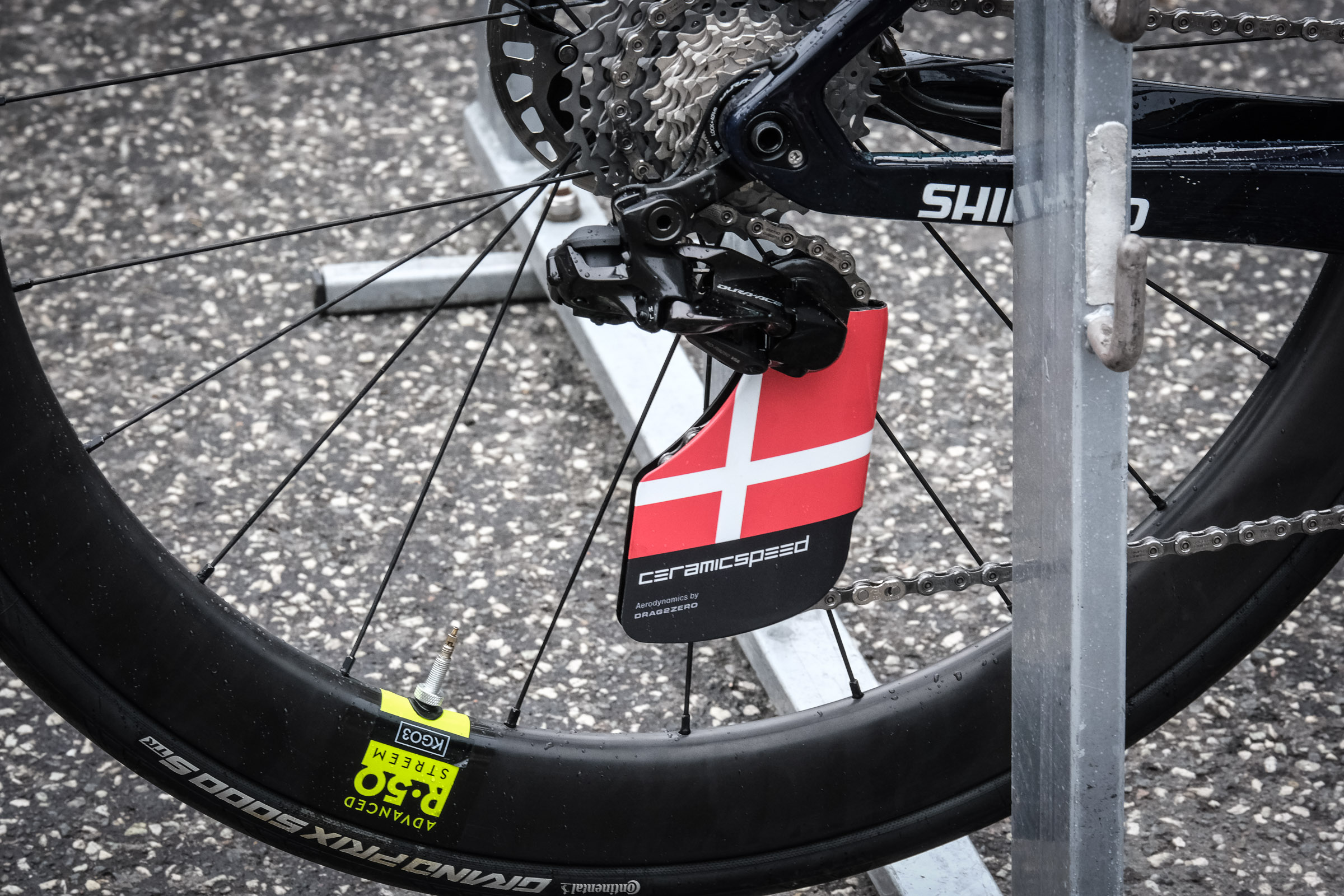
And finally... Danish riders got to fly the flag with the special CeramicSpeed OSPW Aero pulley system so that they were boosted not only by the the home crowd but also got a micro-watt of savings.

Thank you for reading 20 articles this month* Join now for unlimited access
Enjoy your first month for just £1 / $1 / €1
*Read 5 free articles per month without a subscription

Join now for unlimited access
Try first month for just £1 / $1 / €1
Get The Leadout Newsletter
The latest race content, interviews, features, reviews and expert buying guides, direct to your inbox!
Simon Smythe is a hugely experienced cycling tech writer, who has been writing for Cycling Weekly since 2003. Until recently he was our senior tech writer. In his cycling career Simon has mostly focused on time trialling with a national medal, a few open wins and his club's 30-mile record in his palmares. These days he spends most of his time testing road bikes, or on a tandem doing the school run with his younger son.
-
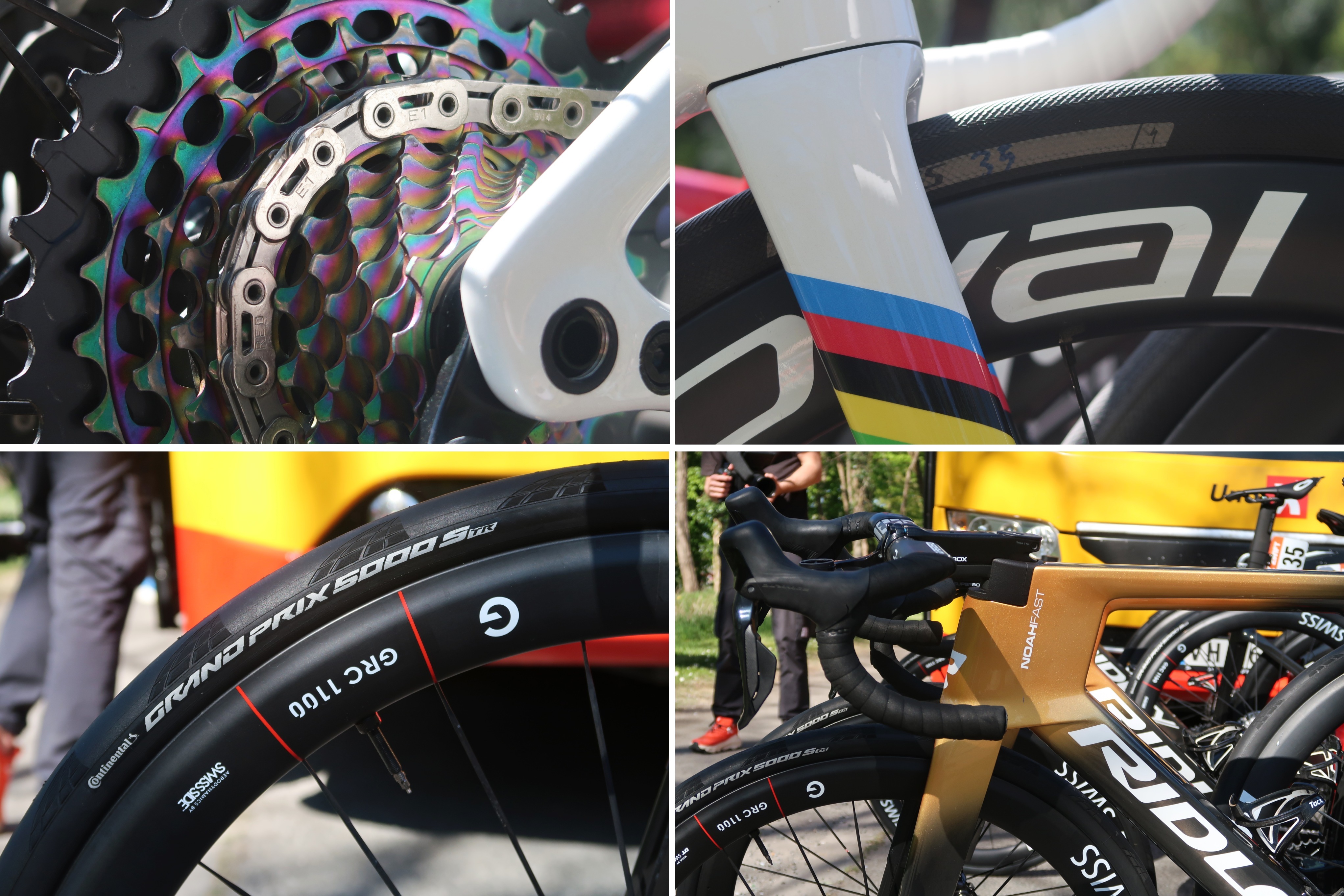 Aero bikes with gravel wheels?: Six tech insights from Paris-Roubaix Femmes
Aero bikes with gravel wheels?: Six tech insights from Paris-Roubaix FemmesEverything we found out about tyre widths, self-inflating systems, and wheel choices from the cobbled Monument
By Tom Davidson Published
-
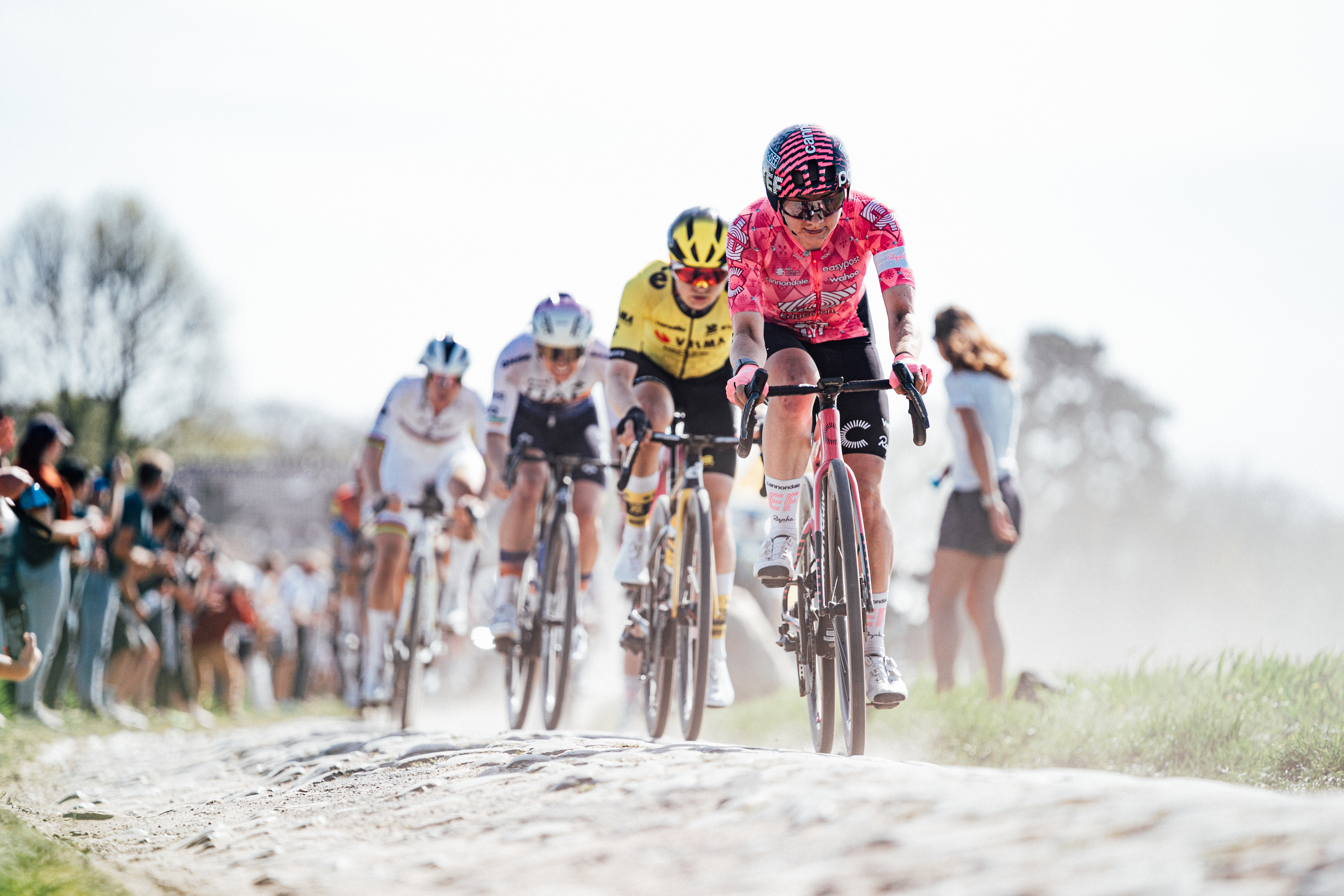 'This race is absolutely disgusting': Peloton reacts to another brutal Paris-Roubaix Femmes
'This race is absolutely disgusting': Peloton reacts to another brutal Paris-Roubaix FemmesNow in its fifth edition, Paris-Roubaix Femmes is still a tough race, even for the best bike riders in the world
By Adam Becket Published